7 Psychology Facts On Improving Your Well Being

Life can be tough and sometimes what we need are a few simple reminders to keep going. In the midst of hardships, it’s so easy to get lost amongst our stress influencers that we tend to keep our health on the backburner. Whether you’re looking for some encouragement, motivation, or positivity, Psych2Go shares with you 7 interesting psychology facts on improving your well being:
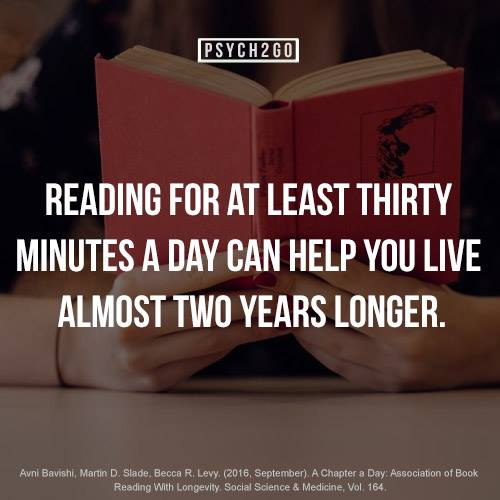
1. Reading for at least thirty minutes a day can help you live almost two years longer.
A study was conducted on readers and nonreaders over a 12 year period and it was shown that those who read for more than 3.5 hours a week were 23% less likely to die than those who didn’t read at all. While researchers aren’t sure what the main cause for this is, they made an inference that reading helps stimulate the brain, which helps it work more efficiently. Reading has been shown to increase people’s vocabulary, reasoning skills, critical thinking, concentration, emotional intelligence, and empathy. By strengthening these aspects, it gives people what is considered a survival advantage. Cut down on your TV time and pick up a book instead!

2. Deactivating your Facebook account can make you happier.
It’s good just to get away at times. But, social media makes that hard to do. While Facebook supplies people with the benefit of staying connected with loved ones, it also creates for susceptibility of creating unrealistic expectations for happiness. We start comparing our lives to others when it seems like everyone else is better at being more successful and having more fun than us. By giving yourself a break and deactivating your Facebook account for a while, it allows for you to only focus on yourself instead of succumbing to social pressures to maintain a certain image.
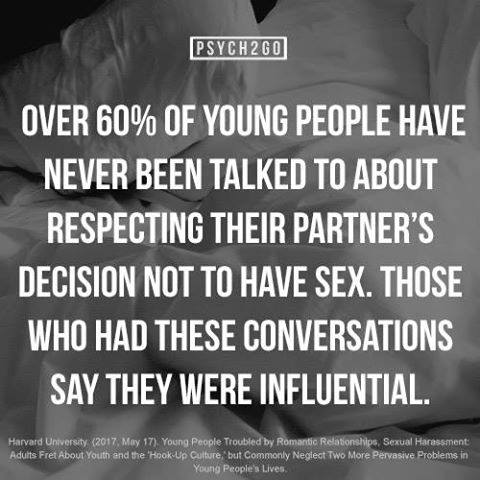
3. Over 60% of young people have never been talked to about respecting their partner’s decision not to have sex. Those who had these conversations say they were influential.
According to a survey, 70% of the participants reported that they wished they received more information from their parents about developing romantic relationships. The rates of sexual assault amongst young people are also high, and yet most of it goes untalked about. 76% of the survey participants reported that their parents never talked to them about how to avoid sexually harassing someone. Sex education and the importance of respecting boundaries aren’t things that are magically and innately understood. Having these conversations, no matter how difficult or uncomfortable, is important if we care about developing healthy relationships. The Perks of Being A Wallflower by Stephen Chbosky is a recommended read for a topic as heavy as this.
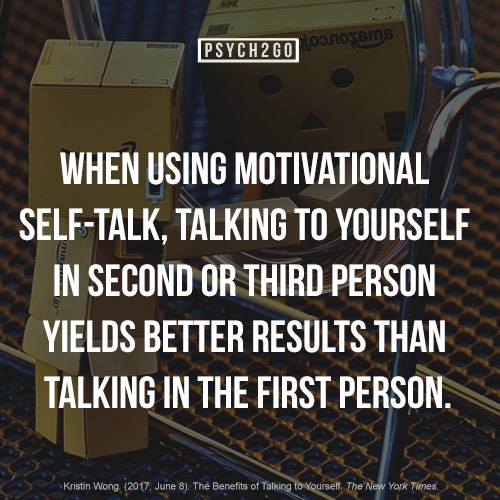
4. When using motivational self-talk, talking to yourself in second or third person yields better results than talking in the first person.
This is because you’re self-distancing, which means that you’re focusing on the self but from a distance using a perspective other than first, even if that person is you. If you ever found it easier to dish out advice instead of following your own, then this is why talking to yourself in second or third person helps. You’re making yourself an outsider that’s giving you advice. It also helps you detach from being emotionally involved so that you can give yourself a more logical and unbiased perspective.

5. Just believing that you’ve slept better than you really have is enough to boost cognitive performance the next day.
Participants in a study who were told that they had above-average REM sleep performed better on a test than participants who were told they had below-average REM sleep, even though researchers controlled both of their sleep qualities. By lying to yourself with the belief that you slept well even if you didn’t, you can help yourself get through the day better. In this case, not all tricks are bad.
6. People who feel connected to nature have lower levels of anxiety.
Nature heals, soothes, and restores. We’re genetically programmed to find plants, water, and trees to be essential for us to survive; therefore, nature helps us center ourselves as we learn to step away from the sources of our pain and stress. By spending more time outside with nature, we become more calm and balanced. It clears and empties our head from the negativity that festers up in there.
7. Falling in love helps to stabilize the personalities of people who are neurotic.
People who struggle with neurosis tend to have low self-esteem and a stronger leaning towards anxiety and depression. But, when they are found in healthy romantic relationships, studies have shown that falling in love can help stabilize them. This is because neurotic individuals react more dramatically to their external influences. Letting someone worthwhile into your heart can do amazing wonders to your health.
Do these strategies work for you? Leave a comment down below!
Sources:
Beck, J. (2014, January 24). Study: Believing You’ve Slept Well, Even If You Haven’t, Improves Performance. Retrieved September 5, 2017.
- (2016, December 12). How Reading Books Can Boost Your Life Expectancy. Retrieved September 5, 2017.
Larson, J. (2017). How Does Nature Impact Our Wellbeing? Retrieved September 5, 2017.
Pedersen, T. (2014, May 10). Romantic Relationship Can Stabilize Neurotic Person. Retrieved September 5, 2017.

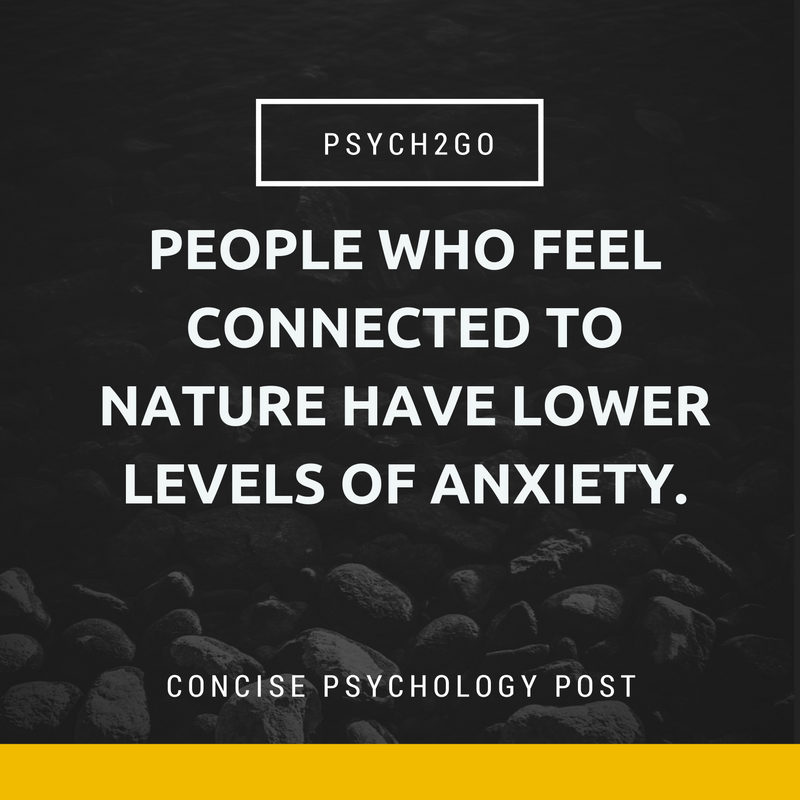
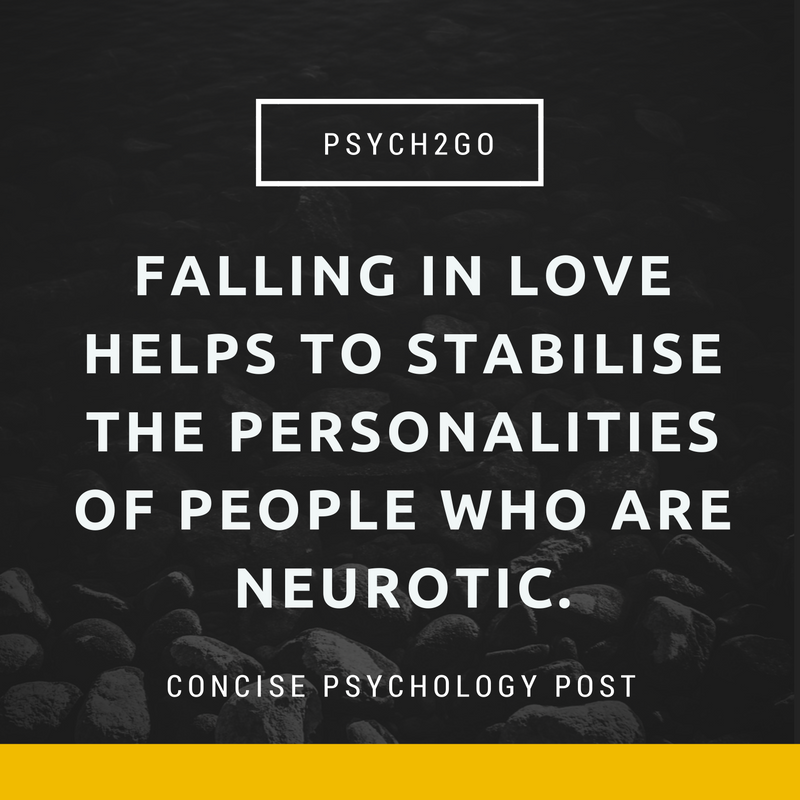


Responses